All of us have experienced feeling some anxiety, which is a normal part of life. Anxiety is our body’s natural response to stress or any perceived danger. But when it gets in the way of our daily life, it is time to consider these three tips to manage anxiety or to seek professional help.
Often times, the simplest action can produce the most profound effect to reduce anxiety. Simply become aware of your breathing the next time you feel anxious. Your heart beats faster when faced with an overwhelming task or event.
Chances are that your breathing has become shallower, making you feel even more anxious. There are many strategies or tips to manage anxiety that you can consider.
Discover or revisit ways to cope with your anxiety naturally before it goes unchecked. The following are 3 tips to manage anxiety:
1. Square breathing method
2. Half-smile and Inner smile techniques
3. The Mindful Way of Falun Gong
1. Square Breathing to Manage Anxiety
Here is the 4-steps sequence for practicing the square breathing.
- Inhale for 4 seconds
- Hold or pause for 4 seconds
- Exhale for 4 seconds
- Hold or pause for 4 seconds
Repeat the above sequence four times, or for as long as you need. Focus on breathing naturally, without straining to gasp for air.

You can also increase the duration of the inhalation-hold-exhalation sequence from four to six or more seconds.
When done correctly, square breathing is a powerful tool to reduce or manage anxiety.
Like each side of a square is the same length, the inhale-exhale and pauses in square breathing are the same length. Hence, it is known as square breathing.
It does not matter whether the breathing and pause ratio is 4:4, 6:6, or a higher. The aim is to be consistent and to slow down your breathing pattern.
When you take fewer breaths during each minute, you will naturally feel more relaxed and calmer. The square breathing is just one of the tips to manage anxiety.
2. Half-smile and Inner-smile
Smiling is an uplifting way to make us and others feel good. When we smile, we not only reduce anxiety. We tend to feel more relaxed and more positive. Check out 10 Ways to Stay Positive.
The half-smile and the inner-smile take the practice of smiling to a whole new level and realm.
Consider smiling this way as a mindful daily practice. The outcome will not only reduce anxiety. Smiling this way will keep negative states and emotions at bay.
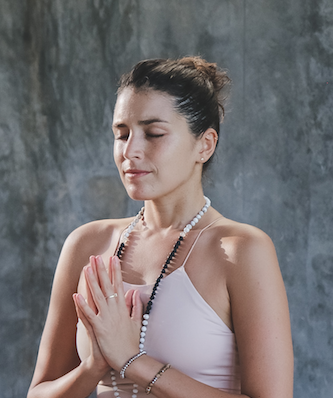
The Half-Smile
This involves holding a gentle smile. It is like you are smiling yet not smiling: not smiling, yet smiling.
Coupled with the square breathing, its impact to manage anxiety is astonishing.
When you hold a half-smile, your facial muscles soften and relax. Your brain and body will sense these affirmative communication signals, bringing about calmness and a less anxious state.
The ability of the half-smile to quell or manage anxiety is surprising. Try it. If it’s hard, fake it till you achieve it by holding a pen or a chopstick in between your teeth. You will feel the half-smile keeps anxiety at bay.
The Inner Smile Helps Manage Anxiety
The inner smile is subtler and an inward manifestation of the half-smile.
If you can do the half-smile effortlessly, you will be able to achieve the inner smile state. The latter is like you are half-smiling to yourself inside your heart and mind.
The first step is to become mindfully aware that you are half-smiling. Then bring the half-smile inward. This means that people do not see you smiling broadly. Only you are aware that you are smiling inwardly to yourself!
Then let the inner smile radiate from your heart till its radiance manifest in your eyes. You will feel calm. In this peaceful state, there is no room for anxiety in your daily life.
Through cultivating the inner smile, you can reduce anxiety naturally. Give it a try as you are reading this post and let me know how you feel.
When Do You Practice?
Like the square breathing, you can practice the half-smile and the inner smile at any time, place, or situation.
For me, the best time is to start immediately upon waking up. Doing it the very first thing in the morning helps me to set the tone for the rest of the day.
If it helps, hang a cute “smile” note on the wall. It can be any sign or object that resonates best for you. For instance, a crystal pendant dangling from the ceiling or window that you can see when you open your eyes.
3. Practicing Falun Gong to Manage Anxiety
The last of the three tips to manage anxiety is to consider practicing Falun Gong. Various studies, including the author’s research, have shown that many individuals reported Falun Gong has helped to reduce anxiety.
Also known as Falun Dafa, Falun Gong is an ancient Chinese spiritual discipline based on Buddhist and Taoist traditions. Integral to the practice are the three universal principles of truthfulness, compassion, and forbearance or tolerance.
Mind-body and Spiritual Practice
Falun Gong is a cultivation practice of both mind and body, with moral teachings and exercise practice. The teachings guide you to live in closer harmony with the universal principles that all orthodox religions follow.
Falun Gong is simple. It has only four standing exercises and one sitting meditation. There is no specified breathing technique to follow when doing the exercises. The exercises help calm the heart and mind. Practicing Falun Gong will thus help to reduce and manage anxiety in your daily life.
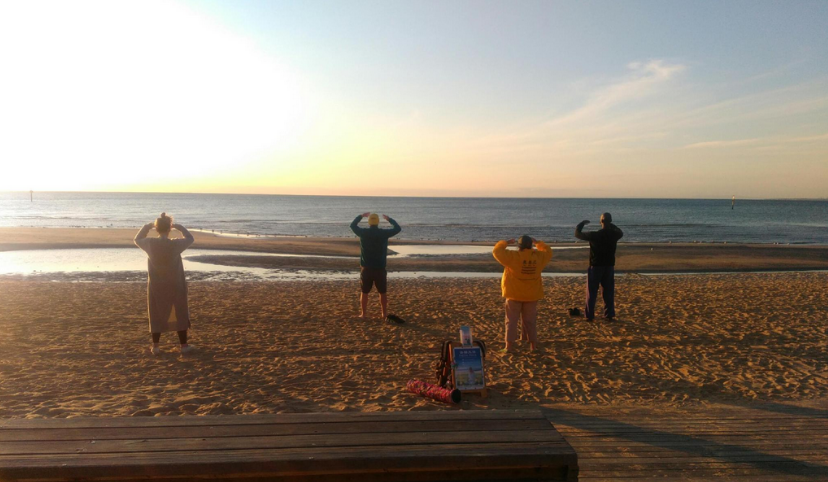
You can do the exercise wherever you choose to. The exercises are unique, enjoyable, and do not imitate animal movements. This is unlike many similar Eastern meditative practices, such as qigong, yoga, and Tai chi.
What it Entails
Practicing Falun Gong is immensely personal. There are no churches or temples, no membership or initiation rituals, or tuition fees. You can freely choose, practice, and appreciate the teachings according to your level of understanding. And you can freely leave at any time you wish.
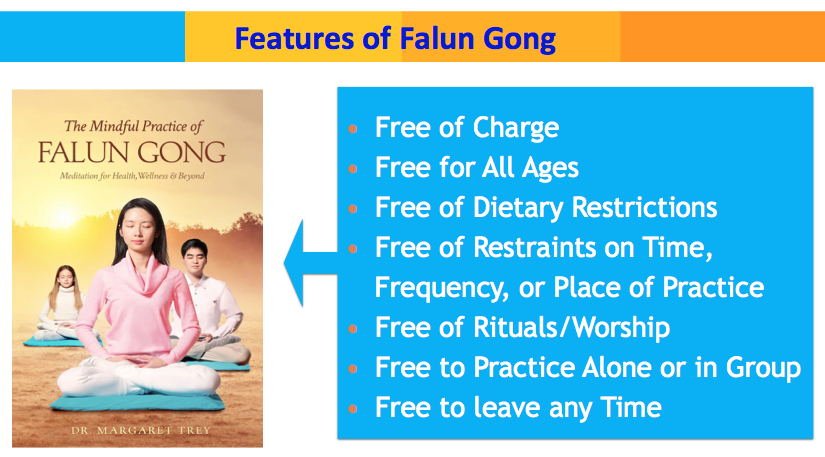
Some of us prefer to read the teachings alone, while others study in a group. Likewise, some prefer to sit in solitary meditation at dawn or any convenient time. Others practice at a set time in parks or on the beach with a group.
As a researcher and author of two books on health and wellness effects of Falun Gong, I recommend you to give it a try.
Takeaway for the 3 Tips to Manage Anxiety
The three tips to manage anxiety are easy to learn. You can perform all of them at any time and any place. You can immediately learn to do the square breathing, the half-smile and inner smile by yourself.
With Falun Gong, I have heard from individuals who learned the practice online before eventually joining a group or community of practitioners.
For more information, visit the official Falun Gong website. All reading materials and video are available for free download.
Practice Falun Gong, do the square breathing, and mindfully practice the half-smile or inner smile, the next time when you feel anxious. Nothing ventured, nothing gained.
You will find that you can manage anxiety and reduce it by a few notches, if not completely. So, try them out to see how the three tips to manage anxiety work for you.
Note: Nothing in this post is intended to substitute for professional medical advice. The information contained here is for informational purposes only and cannot be construed as medical advice. If you have questions about your health or medical conditions, you should seek a licensed health care professional.
Dr. Margaret Trey has a doctorate in counseling from The University of South Australia. As a counselor previously based at two medical centers, she has ample experience with integrating Falun Gong into her professional practice and effectively helping her clients to manage and reduce anxiety.
 Dr. Margaret TreyAuthor, Researcher & Wellness Advocate
Dr. Margaret TreyAuthor, Researcher & Wellness Advocate
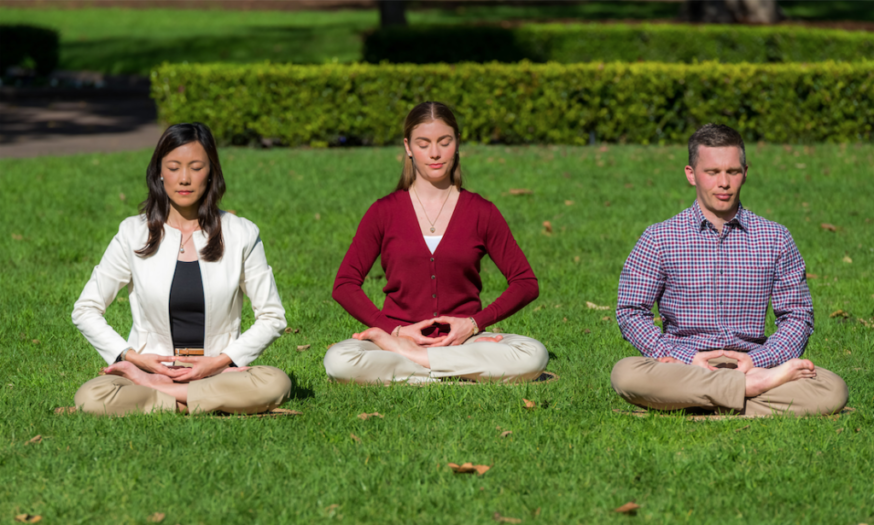




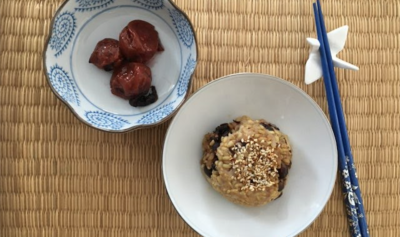

[…] de Dr. Margaret Trey. Holistic Wellness Expert por […]
Thank you for posting my article in Spanish. Have you seen this post, 10 Ways to Stay Positive in Tough Times?